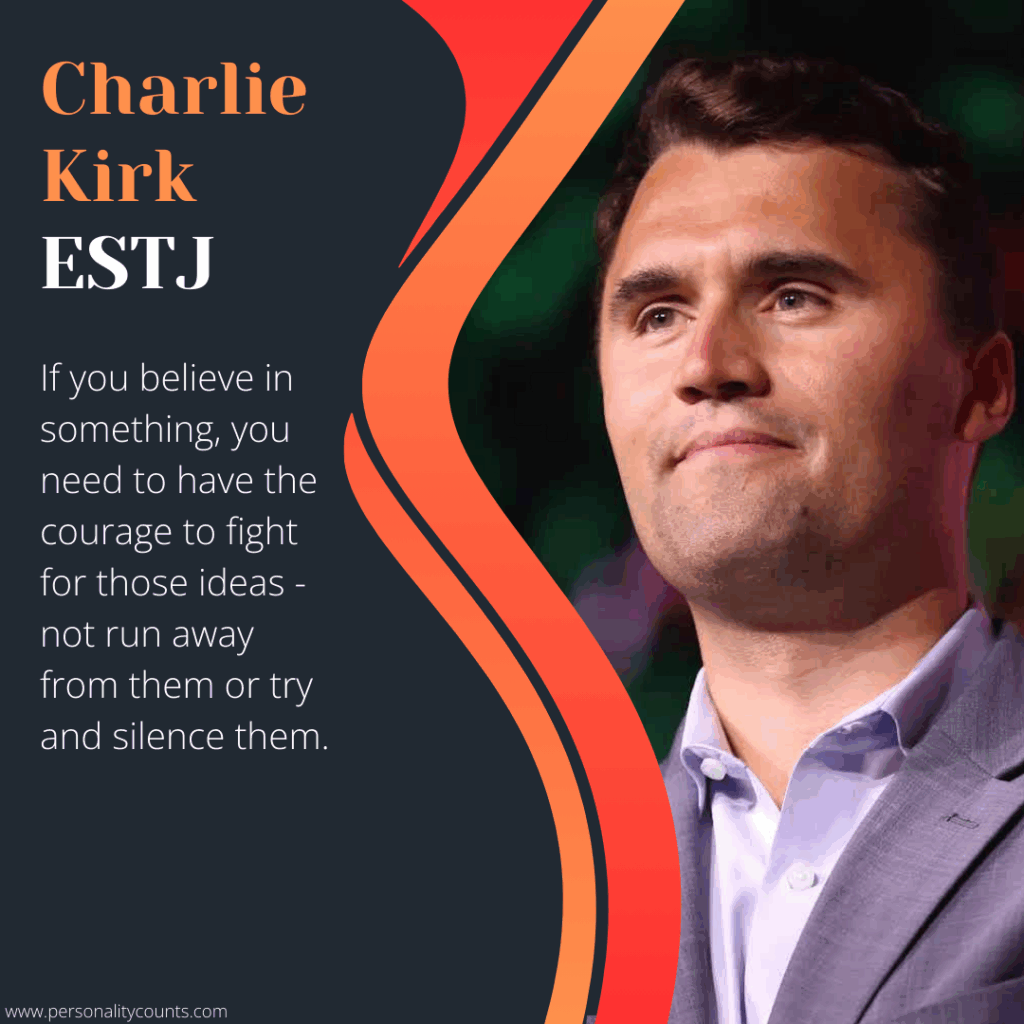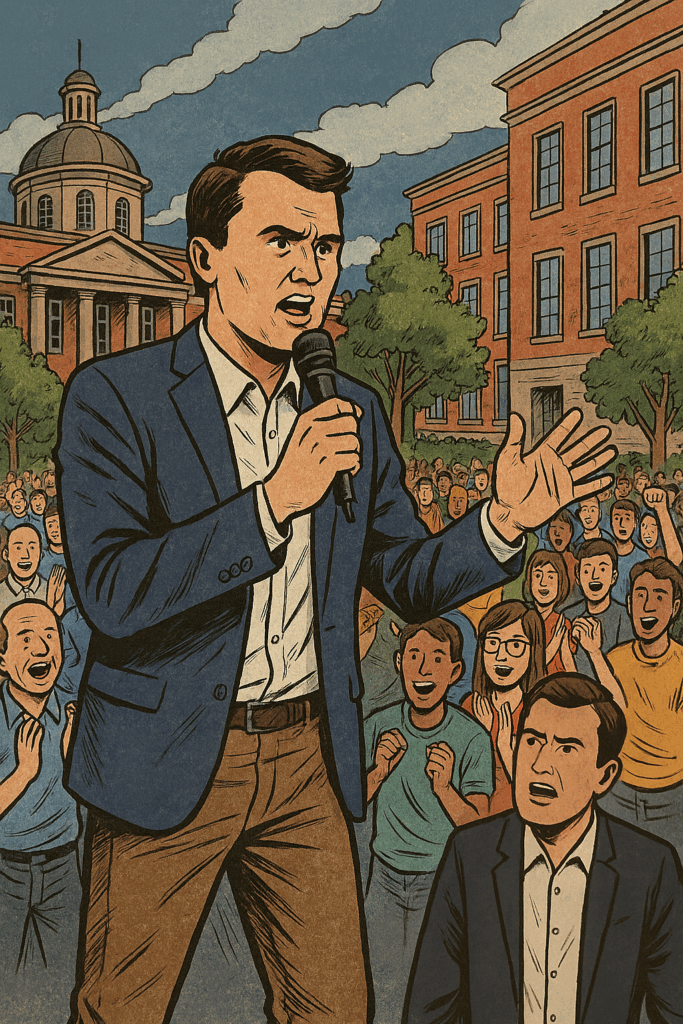
ESTJ
Charlie Kirk, the founder of Turning Point USA, demonstrates many of the hallmarks of the ESTJ personality type. ESTJs are known for their strong leadership skills, commitment to order, and direct communication style. Often called “The Executives,” they thrive on creating structure, enforcing standards, and taking charge of situations.
Kirk’s leadership of Turning Point USA showcases the ESTJ ability to build organizations, mobilize people, and establish clear systems for growth. His public persona reflects the confidence, discipline, and structured worldview that ESTJs naturally bring into leadership roles.
Charlie Kirk Speaking at College Campus Debate

Charlie Kirk is well known for his debates and campus events, where he brings structure, confidence, and principle-driven leadership to the stage. In this scene, Kirk stands before a large group of students at a college campus, emphasizing his role as a strong advocate for free speech and open dialogue. The lively crowd and academic backdrop highlight the importance of student engagement in discussions about values and ideas.
As an ESTJ, Kirk thrives in environments that require clear communication and decisive leadership. His work with Turning Point USA has made him a recognizable figure in college debates, often challenging students to think critically and defend their perspectives. This moment reflects his ability to organize, inspire, and rally people around shared principles.
The setting serves as a visual reminder of Kirk’s ESTJ qualities: disciplined, direct, and focused on building order in high-energy environments. Whether leading an organization or engaging in debates, Charlie Kirk continues to exemplify the structure and resolve associated with his personality type.
Interesting Facts Linked to Personality Type
- Clear and direct: ESTJs value efficiency and clarity, which is why Kirk often delivers his points in a no-nonsense style.
- Strong sense of duty: Like many ESTJs, he sees himself as upholding values and traditions that he believes should guide society.
- Organizational drive: Founding and expanding Turning Point USA reflects the ESTJ talent for structuring teams and managing rapid growth.
- Debate-ready personality: ESTJs often enjoy structured argument, and Kirk’s sharp, debate-focused approach fits this pattern well.
Examples of How Traits Show in Public Life
Charlie Kirk’s ESTJ nature is especially clear in his role at Turning Point USA, which he started in 2012 and grew into a nationally recognized student movement. The group’s focus on activism, free speech, and conservative principles aligns closely with the ESTJ mindset of protecting systems they view as essential for stability and order.
His speaking style at Turning Point conferences and college events is structured, assertive, and confident — all trademarks of an ESTJ communicator. Kirk isn’t afraid of confrontation, but he frames his arguments within rules and principles, the way ESTJs naturally prefer to debate.
Even in interviews, Kirk rarely strays into improvisation. Instead, he sticks closely to frameworks, facts, and organized talking points. His ability to keep Turning Point USA disciplined and growing reflects the ESTJ’s gift for long-term planning and execution.
How Understanding Personality Can Benefit Fans or Aspiring Leaders
- Lead with confidence: ESTJs show that clarity and decisiveness can inspire people to follow.
- Value structure: Building frameworks — whether in business, activism, or personal life — helps create long-term impact.
- Stand by principles: Kirk’s Turning Point role demonstrates the power of holding firm to values, even in heated debates.
- Communicate directly: Sometimes the simplest, most straightforward approach is the most effective.
Famous Quotes
“I am willing to go anywhere, at any time, to debate anyone on the importance of free markets and free people.”
This reflects the ESTJ drive to stand firm in beliefs and take action to defend them.
“Free speech is the bedrock of a free society.”
Here, Kirk shows the ESTJ commitment to protecting systems and principles that they believe hold society together.
